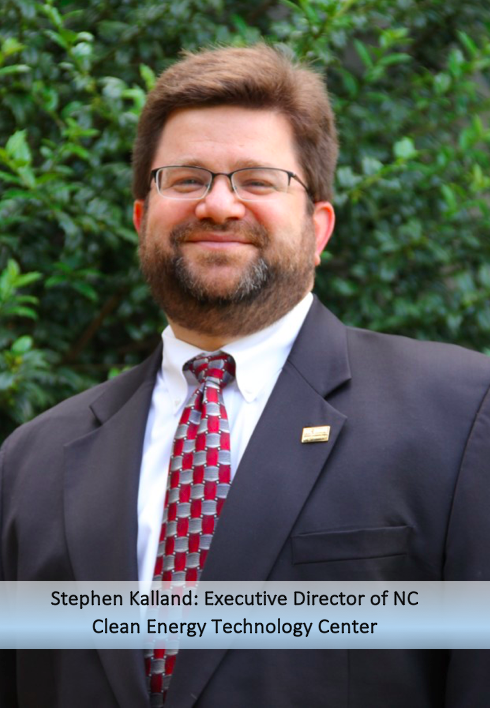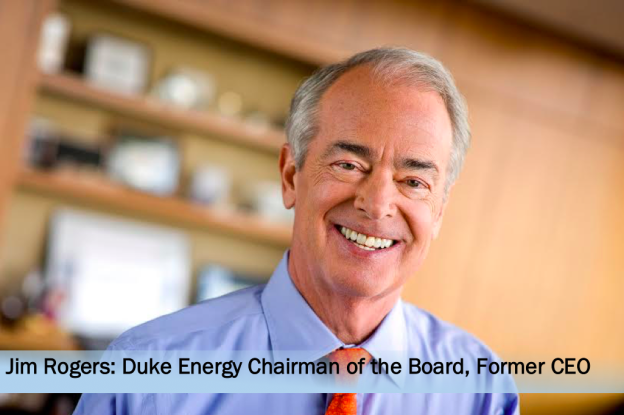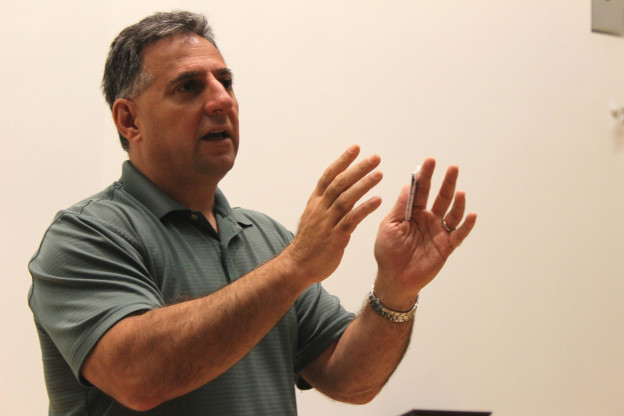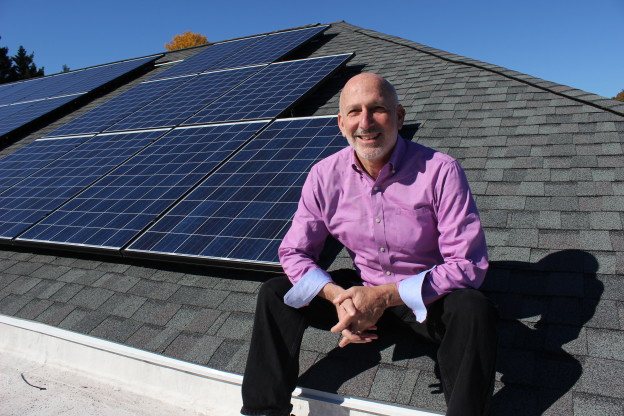Stephen Kalland has worked with energy efficiency and renewable energy for over 20 years. His work with the North Carolina Clean Energy Center includes public policy as well as workforce and economic development. Here, Steve speaks to the solar momentum in North Carolina as well as how the next generation should continue to look forward.
United Solar Initiative: In your experience, what has laid the foundation for the growth of solar in North Carolina- in terms of policy, big business, and otherwise?
Stephen Kalland: Well, I think if you go back far enough, the foundation was really laid more than 20 years ago with the creation of the North Carolina Sustainable Energy Association and the North Carolina Solar Center, my organization. These were the two early entities that kind of had North Carolina keep energy on its radar screen, in the early years when there was not much going on in the industry.
You know, the political work in particular that NCSCA has done- has done a lot over the years- you know the market that we have now, there’s a lot of policy involved in that market. But it’s not necessarily any one big piece, it’s a collection of a lot of smaller pieces that have made it happen.
And some of those pieces that have been around dating back to the early 80’s, and have been painstakingly crafted and put into place and nurtured by these early organizations and have kind of grown to a point where when market prices fell to an appropriate level, the market really took off.
USI: What is the most exciting thing you’ve seen in terms of new sustainable or renewable energy technologies?
Kalland: Well there’s a lot of new technology out there that’s not really renewable that is going to drive the next generation of technology. It’s more what I would call enabling technologies. Things like smart grid technologies of various types- everything from group management and integration at the network level down to the thermostat on my wall.
You combine that with the evolution of more practical microgrid technology, energy storage technology that’s starting to roll out more aggressively at costs that are more economically feasible.
Even right now the most exciting thing is frankly the opportunity that all of these new smart technologies are creating for data. At a time in the very near horizon, there’s going to be a huge amount of data available that we’re going to have to figure out what to do with. Bringing to bare some of the tools that are being developed in the world of big data, bringing them to bare in the world of energy management, technologically is not very far away.
I think potentially it can create fairly sizable benefits to the economy and the people. I think the problem we’ve got is, while the technology is not very far away, the regulatory framework and the policies take advantage of those technologies…. So we’ve got some work to do to try to adapt the system to best take advantage of the new technology.
USI: What is the most pivotal thing you think our generation should focus its efforts on to see big changes and continued growth in the clean energy sector?
Kalland: Well I think probably the biggest issue that your generation- and when I say your generation and I’m talking to you and people down to the age of my oldest son who is 15- I think the biggest thing in regards to energy is mindfulness.
My generation doesn’t even know what energy is. They’re pretty much convinced it comes from a switch on the wall or a socket on the wall and doesn’t really think, for the most part, about the implications of how it’s generated, how it’s transmitted, how it’s used very much. And I think that’s what’s really led us to the problem we have today with things like climate change right on down the line to coal ash pollution.
So you know, your generation will have a whole new set of technologies available to it to try and move it in a direction that’s not going to have these same problems. And if you are mindful of it and continue to make it an issue, and this is the problem- if you look at political polling since we’re on a big election day today up in New Hampshire- if you look at political polling, energy issues are fifteenth on the list of things people are worried about.
But if you dig into energy issues, they’re the root cause of a lot of other issues. They’re the root cause of a lot of issues we’re dealing with in the Middle East. They’re the root cause of a lot of issues we’re dealing with in terms of poverty, of access to opportunities for young people, particularly in low-income communities. There are just a lot of things that energy touches. But it just doesn’t touch it in a way that is tremendously transparent and visible to a lot of people today. So, yeah- mindfulness is probably the big thing your generation needs to focus on.
USI: Why is the Clean Tech Summit important for the state’s renewable industry?
Kalland: Well I think again, it’s an opportunity to bring together some of the old technology and some of the new technology and talk about how we can work together to move the agenda forward.
Looking at the agenda you’ve got folks from major electrical utilities, you’ve got folks from the regulatory communities, and you’ve got a lot of folks working not only in the renewable field but are working in some of these associated supporting technology fields we talked about. I saw a whole session on the ‘Internet of Things’ and I’m really excited to go to those sessions.
So I think, in general, these conversations need to happen and they need to happen frequently to drive us to where we need to be.
USI: Why solar?
Kalland: Why solar? Well, so I teach environmental science to undergrads here at NC State. And I’ve been involved in the energy field now for twenty-some odd years.
You know, the reality is, there is no silver bullet for our problems. But of the bullets we have in the gun, solar, particularly when combined with a smarter grid and energy storage capabilities, is about the closest to a silver bullet we’re gonna find.
We’re just not ready to pull the plug on existing power plants and supplant them with solar tomorrow, and we may not be ready for a while. But solar is the technology that probably has the best opportunity to continue reducing its costs, improving its efficiency, and improving its applicability with all of these new technologies that are coming down the pipe that will make it more and more useful.
So you know, nothing’s perfect, but solar is approaching as good as it gets with the technology that we have today.
Article By: Meredith Ratledge










